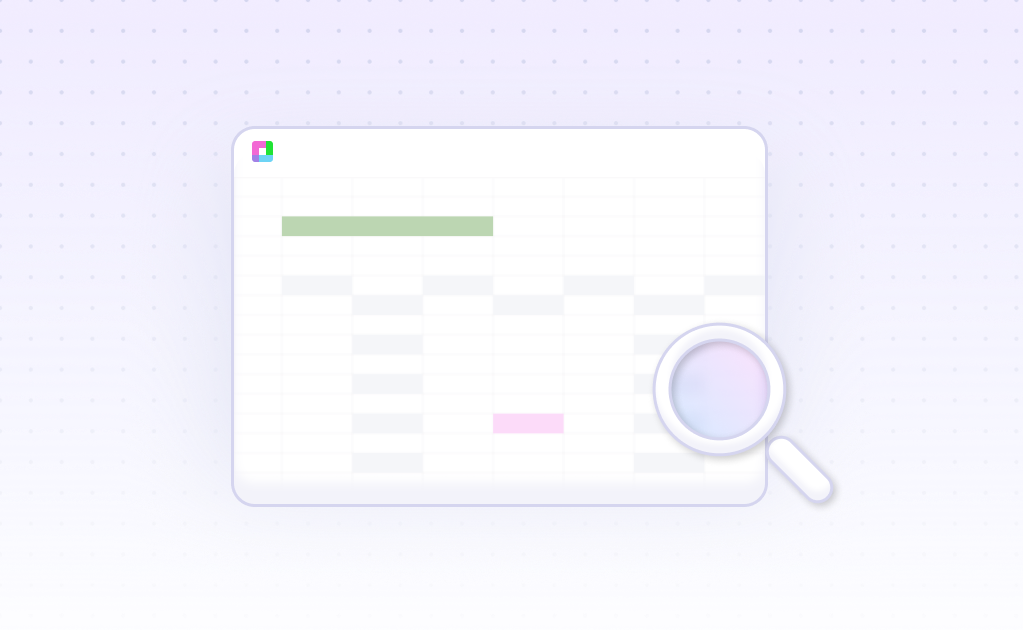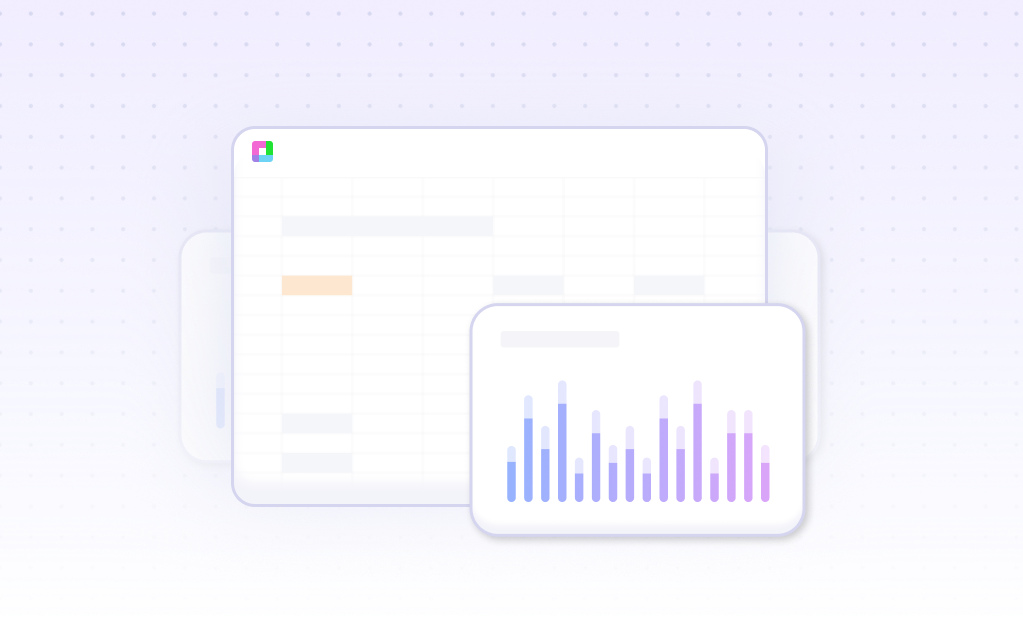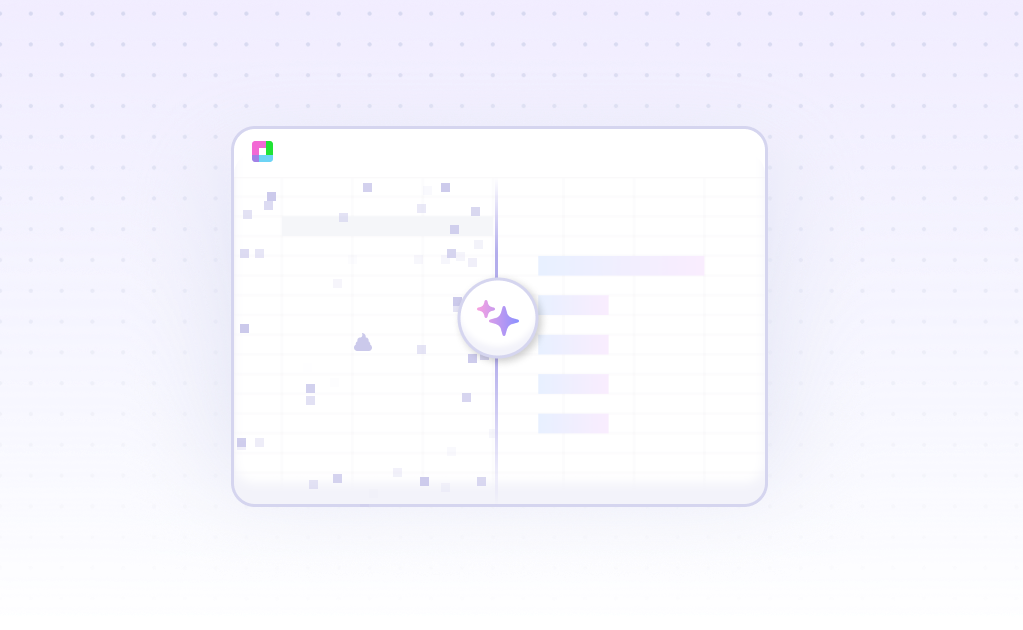
Introduction
Policy analysis requires processing large amounts of data to make informed decisions. Excel's Analyze Data feature enables natural language queries and visual summaries, but it has limitations with large datasets and specific data formats. Sourcetable offers an AI-powered alternative that combines spreadsheet functionality with advanced analysis capabilities.
Sourcetable streamlines policy analysis through AI-driven formulas, automated data cleaning, and interactive visualizations. It integrates with SQL and Python for complex analysis while offering voice-driven interaction. The platform supports stakeholder analysis, privacy impact assessments, and policy idea generation.
Learn how Sourcetable's AI capabilities can transform your policy analysis workflow.
Why Sourcetable Is Superior for Policy Analysis
Sourcetable revolutionizes policy analysis by combining advanced data analysis capabilities with AI-powered automation. Unlike Excel, Sourcetable offers unlimited data integrations and real-time dashboard updates, essential for comprehensive policy research.
Enhanced Data Processing
Sourcetable's AI algorithms automate data entry, clean datasets, and validate information with greater accuracy than traditional Excel workflows. This automation reduces human error while allowing analysts to focus on high-value interpretation rather than manual data processing.
Advanced Analysis Capabilities
The platform seamlessly integrates with critical data sources including Hubspot, Google Ads, and financial services like Quickbooks and Stripe. These integrations, combined with robust formula functions and filtering capabilities, enable deeper policy insights than Excel's limited connectivity options.
Improved Decision Making
Sourcetable's AI-powered visualization tools automatically generate charts and real-time dashboards that enhance data communication. This feature enables policy analysts to identify patterns and trends more efficiently than Excel's manual visualization process, leading to more informed policy decisions.
Streamlined Workflow
With a familiar spreadsheet interface and user-friendly design, Sourcetable maintains Excel's accessibility while adding powerful AI capabilities. The platform's automation of repetitive tasks and complex calculations significantly improves analytical efficiency and accuracy in policy research.
Benefits of Policy Analysis with AI-Powered Spreadsheets
Policy analysis enables policymakers to determine effective solutions to challenges while making informed, transparent decisions. Through systematic analysis, decision-makers can better anticipate unintended consequences and improve overall policy outcomes.
Enhanced Policy Analysis with AI Spreadsheet Tools
Modern AI-powered spreadsheet platforms leverage natural language processing to streamline data analysis and visualization. These tools enable faster processing of policy data through plain English commands rather than complex Excel formulas.
AI assistants can clean and anonymize sensitive policy data, generate detailed reports, and create custom functions for specific analysis needs. They also offer guided formula creation and seamless data integration capabilities that help policymakers extract actionable insights more efficiently.
Advanced visualization features help present policy findings clearly to stakeholders, while automation capabilities reduce time spent on repetitive analysis tasks. This allows policymakers to focus more on strategic decision-making and policy implementation.
Types of Policy Analysis with AI-Powered Spreadsheets
AI-powered spreadsheets support comprehensive policy analysis across multiple disciplines including medicine, environment, energy, and economics. These tools enable both qualitative and quantitative analysis through machine learning models that can predict outcomes based on historical data.
Data Analysis Capabilities
Policy analysts can organize, categorize, and visualize data efficiently through automated processes. The software enables trend analysis, pattern recognition, and thematic analysis of large datasets while saving time through automation of repetitive tasks.
Forecasting and Prediction
Machine learning models support financial forecasting, sales predictions, and inventory management. The AI capabilities allow for efficient processing of complex datasets to enable data-driven policy decisions.
Collaboration Analysis
Tools for analyzing co-authorship networks between countries and organizations provide insights into policy collaboration patterns. Co-occurrence network analysis helps identify relationships between policy initiatives across different sectors.
Innovation and Technology Analysis
Advanced analysis capabilities support science, technology, and innovation forecasting. These tools help analyze emerging trends and support policy evolution to address complex social problems.
Policy Analysis Use Cases for Sourcetable
Public Health Policy Modeling |
Use Sourcetable's modeling capabilities to design efficient policy responses for complex public health challenges. Analyze co-authorship networks between organizations and countries to identify key collaborators in health policy research. |
Science and Technology Innovation Forecasting |
Analyze trends and generate forecasts for science, technology, and innovation policies. Track publication patterns and research collaboration networks to identify emerging policy areas. |
Multi-disciplinary Policy Research |
Leverage Sourcetable's ability to analyze data across medicine, environment, energy, and economic sectors. Generate insights from cross-domain policy research through co-occurrence network analysis. |
Organizational Collaboration Analysis |
Track organizational partnerships and assess willingness to collaborate on policy initiatives. Use co-authorship analysis to identify potential institutional partners for policy development projects. |
Data Privacy and Compliance |
Clean sensitive policy data by automatically removing PII with AI-powered tools. Extract specific data points while maintaining compliance with privacy regulations. |
Frequently Asked Questions
What is policy analysis and why is it important?
Policy analysis is the examination and evaluation of available options to address various economic, social, or other public issues. It is critical in the policymaking process as it helps determine the best option that will produce the most desirable result through empirical research and data collection, with participation from key stakeholders like economists, community members, and public officials.
What are the six steps of policy analysis in Sourcetable?
The six steps are: 1) verify, define, and detail the problem, 2) establish evaluation criteria, 3) identify alternative policies, 4) assess alternative policies, 5) display and distinguish among alternatives, and 6) implement, monitor, and evaluate the policy.
How does AI enhance policy analysis in Sourcetable?
AI improves policy analysis by helping policymakers synthesize large amounts of data quickly, detect patterns, generate insights in near real time, make more informed decisions, implement policies more efficiently, and evaluate policies more quickly.
Conclusion
Policy analysis requires robust data analysis capabilities. While Excel's Analyze Data feature offers natural language queries and visual summaries for datasets under 1.5 million cells, Sourcetable provides an AI-powered alternative that automates complex analysis tasks. Learn how to streamline your policy analysis workflow at sourcetable.com/signup.
Sourcetable enhances policy analysis through AI-driven formula generation, automated chart creation, and advanced data cleaning capabilities. Its integration with SQL and Python enables deeper analysis of policy impacts. Voice-driven interactions and connections to over 100 platforms, including Quickbooks and Shopify, make it accessible for policy analysts at any technical level.
For comprehensive policy analysis, Sourcetable assists with stakeholder analysis, privacy impact assessments, and policy idea generation. Its AI capabilities help draft talking points and key messages, making it an essential tool for modern policy analysis workflows.
Recommended Analysis Guides
Connect your most-used data sources and tools to Sourcetable for seamless analysis.
Frequently Asked Questions
If your question is not covered here, you can contact our team.
Contact Us




